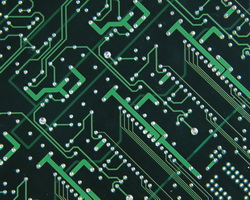Medea + project for the automotive industry to provide a better solution
Zuken, a Japanese electrical and electronic engineering company, announced that it has improved the development process and modelling of new chip sets as well as dedicated high-density interconnect (HDI) for its high-speed design software: CR-5000 Lightning for Power Integrity Analysis.
Zuken’s project is part of MEDEA+, a programme supported by the EUREKA network that promotes advanced cooperative research and development in microelectronics. During the three-year duration of the project, Zuken worked with a number of integrated circuit (IC) vendors and automotive electronic suppliers to successfully develop and improve modelling capabilities for automotive electronic circuits.
The company said the first stage of improvements that resulted from this project will be integrated into a new version of the CR-5000 Lightning solution, which is set for an autumn launch.
In a statement, Zuken said it was able to work out key improvements into the CR-5000 Lightning software — and for its power integrity analysis in particular — thanks to its collaboration with MEDEA+ participants including IC companies and groups that develop complex motor-control units. Power integrity analysis enables engineers to model, simulate and validate high-speed systems and software, and the Lightning software facilitates printed circuit board (PCB) power integrity.
‘In subsequent versions of the software, dedicated IC models delivered by IC vendors like Infineon [a MEDEA+ participant] that describe the chip power-ground behaviour will be supported in the analysis phase,’ the company said.
According to Zuken, the project will also boost the capabilities of CR-5000 Lightning’s signal-integrity analysis, which aims to ensure reliable high-speed data transmission. New functionality would allow modelling of ‘package parasitic effects’ (i.e. salient imperfections); for example, levels of noise in high-speed PCBs, which are used to mechanically support and electrically connect electronic components.
Zuken’s EMC Technology Centre in Germany also took part in the MEDEA+ PARACHUTE (‘Parasitic extraction and optimization for efficient microelectronic system design and application research’) project, which worked on developing top-down extraction, modelling and analysis and design methods in order to strengthen the link between device and systems development. The EMC Technology Centre was responsible for providing the design-level modelling and simulation.
Zuken also helped develop a new approach to electronic design in Europe by targeting physical noise from nanometre circuits to IC package and PCB/system-level design. This contribution gives the industry a boost.
‘By working with companies such as Airbus [France], Astrium [a subsidiary of the European Aeronautic Defence and Space Company], Bosch [Germany], Continental [Germany], Infineon [Germany], Philips [Netherlands] and STMicroelectronics [Switzerland], along with various universities and research labs, we have been able to gain first-hand knowledge of the specific issues the market is facing when using very dense high-speed designs in automotive or aerospace control units,’ said Ralf Brüning of the EMC Technology Centre. ‘This has given us important experience enabling Zuken to incorporate industry-relevant improvements into future software releases,’ he added.












